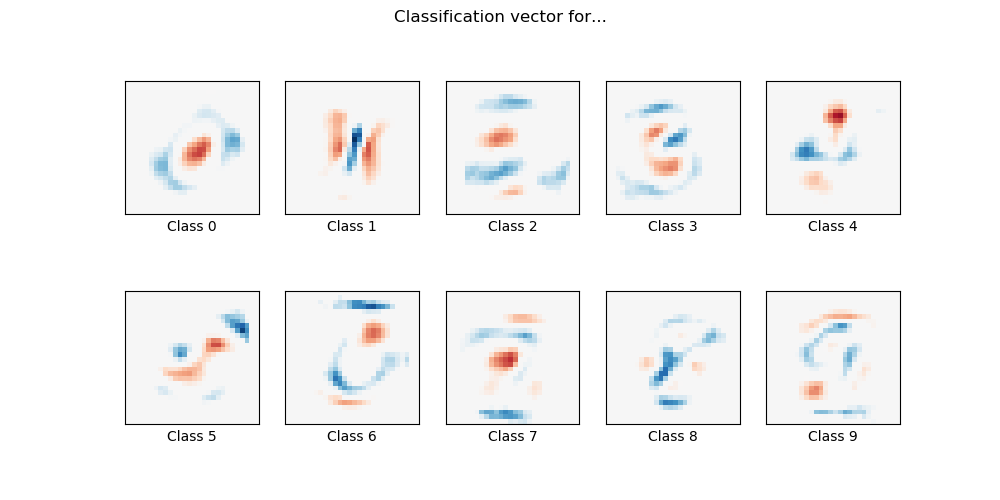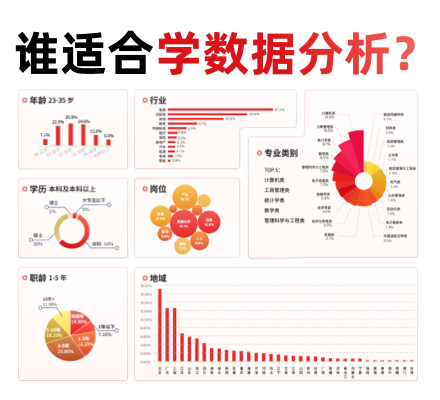用多项式Logistic+L1进行MNIST分类¶
这里,我们在MNIST数字分类任务的子集上拟合具有L1惩罚的多项式Logistic回归。为此,我们使用saga算法:当样本数明显大于特征数时,该算法是一个快速的求解器,并且能够精细地优化非光滑的目标函数,这就是L1惩罚的情况。测试精度达到>0.8,而权重向量保持稀疏,因此更容易解释。
请注意,这个L1惩罚的线性模型的精度明显低于这个数据集上L2惩罚线性模型或者非线性多层感知器模型所能达到的精度。

Sparsity with L1 penalty: 79.95%
Test score with L1 penalty: 0.8322
Example run in 34.699 s
import time
import matplotlib.pyplot as plt
import numpy as np
from sklearn.datasets import fetch_openml
from sklearn.linear_model import LogisticRegression
from sklearn.model_selection import train_test_split
from sklearn.preprocessing import StandardScaler
from sklearn.utils import check_random_state
print(__doc__)
# Author: Arthur Mensch <arthur.mensch@m4x.org>
# License: BSD 3 clause
# Turn down for faster convergence
t0 = time.time()
train_samples = 5000
# Load data from https://www.openml.org/d/554
X, y = fetch_openml('mnist_784', version=1, return_X_y=True)
random_state = check_random_state(0)
permutation = random_state.permutation(X.shape[0])
X = X[permutation]
y = y[permutation]
X = X.reshape((X.shape[0], -1))
X_train, X_test, y_train, y_test = train_test_split(
X, y, train_size=train_samples, test_size=10000)
scaler = StandardScaler()
X_train = scaler.fit_transform(X_train)
X_test = scaler.transform(X_test)
# Turn up tolerance for faster convergence
clf = LogisticRegression(
C=50. / train_samples, penalty='l1', solver='saga', tol=0.1
)
clf.fit(X_train, y_train)
sparsity = np.mean(clf.coef_ == 0) * 100
score = clf.score(X_test, y_test)
# print('Best C % .4f' % clf.C_)
print("Sparsity with L1 penalty: %.2f%%" % sparsity)
print("Test score with L1 penalty: %.4f" % score)
coef = clf.coef_.copy()
plt.figure(figsize=(10, 5))
scale = np.abs(coef).max()
for i in range(10):
l1_plot = plt.subplot(2, 5, i + 1)
l1_plot.imshow(coef[i].reshape(28, 28), interpolation='nearest',
cmap=plt.cm.RdBu, vmin=-scale, vmax=scale)
l1_plot.set_xticks(())
l1_plot.set_yticks(())
l1_plot.set_xlabel('Class %i' % i)
plt.suptitle('Classification vector for...')
run_time = time.time() - t0
print('Example run in %.3f s' % run_time)
plt.show()
脚本的总运行时间:(0分34.799秒)
Download Python source code:plot_sparse_logistic_regression_mnist.py
Download Jupyter notebook:plot_sparse_logistic_regression_mnist.ipynb




